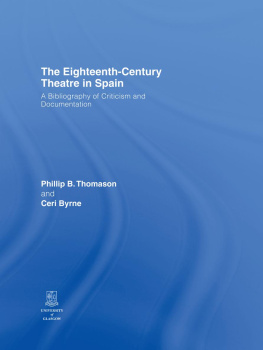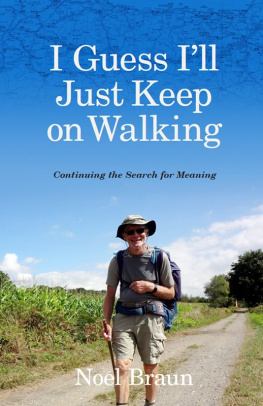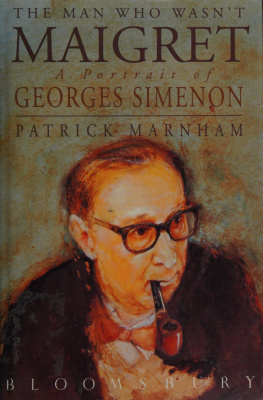PHILIP THICKNESSE.
LETTER I
Calais , June 20th, 1775
Dear Sir ,
As you are kind enough to say, that those letters which I wrote from this kingdom, nine or ten years ago, were of some use to you, in the little tour you made through France soon after, and as they have been considered in some degree to be so to many other persons, (since their publication) who were unacquainted with the manners and customs of the French nation, I shall endeavour to bring together, in this second correspondence with you, not only some of the former hints I gave you, but such other remarks as a longer acquaintance with the country, and a more extensive tour, may furnish me with; but before I proceed any further, let me remind you, of one great fault I was then guilty of; for though your partiality to me might induce you to overlook it, the public did not, I mean that of writing when my temper was disturbed, either by cross incidents I met with upon the road, or disagreeable news which often followed me from my own country into this. I need not tell a man of your discernment, in what a different light all objects, whether animate, or inanimate, appear to those, whose temper is disturbed, either by ill health, ill treatment, or, what is perhaps more prevalent than either, the chagrin he may feel at not being rated in the estimation of others, according to that value he puts upon himself. Could Dr. Smollett rise from the dead, and sit down in perfect health, and good temper, and read his travels through France and Italy, he would probably find most of his anger turned upon himself. But, poor man! he was ill; and meeting with, what every stranger must expect to meet at most French inns, want of cleanliness, imposition, and incivility; he was so much disturbed by those incidents, that to say no more of the writings of an ingenious and deceased author, his travels into France, and Italy, are the least entertaining, in my humble opinion, of all his works. Indeed I have observed that most travellers fall into one extreme, or the other, and either are all panegyric or all censure; in which case, all they say cannot be just; for, as all nations are governed by men, and the bulk of men of all nations live by artifice of one kind or other, the few men who pass among them, without any sinister views, cannot avoid feeling, and but few from complaining of the ill treatment they meet with; not considering one of Swift's shrewd remarks; I never said he, knew a man who could not bear the misfortunes of another perfectly like a Christian.
Remember therefore, when I tell you how ill I have been treated either by Lords or Aubergists, or how dirtily served by either, it is to prepare myself and you too, to be content with neighbours' fare.
When a man writes remarks upon the manners and customs of other nations, he should endeavour to wean himself from all partiality for his own; and I need not tell you that I am in full possession of that single qualification, which I hope will make you some amends for my defects in all the others; for it is certainly unjust, uncandid, and illiberal, to pronounce a custom or fashion absurd, because it does not coincide with our ideas of propriety. A Turk who travelled into England, would, upon his return to Constantinople, tell his countrymen, that at Canterbury; (bring out of opium,) his host did not know even what he demanded; and that it was with some difficulty he found out, that there were shops in the town where opium was sold, and even then, it was with greater, he could prevail upon the vender of it to let him have above half an ounce: if he were questioned, why all these precautions? he would tell them, laughingly, that Englishmen believe opium to be a deadly poison, and those people suspected that he either meant to kill himself, or to poison another man with it.
A French gentleman, who travelled some years since into Spain, had letters of recommendation to a Spanish Bishop, who received him with every mark of politeness, and treated him with much hospitality: soon after he retired to his bedchamber, a priest entered it, holding a vessel in his hand, which was covered with a clean napkin; he said something; but the Frenchman understanding but little Spanish, intimated by signs his thanks, and desired him to put it down, believing, that his friend, the Bishop, had sent him a plate of sweetmeats, fruit, iced cream, or some kind of refreshment to eat before he went to bed, or to refresh his exhausted spirits in the night; but his astonishment was great indeed, when he found the priest put the present under the side of the bed; and more so, when he perceived that it was only a pot de chambre;for, says the Frenchman, "in Spain, they do not use the chaise percee!" The Frenchman is surprized at the Spaniard, for not using so convenient a vehicle; the Englishman is equally surprized, that the Frenchman does;the Frenchman is always attentive to his own person, and scarce ever appears but clean and well dressed; while his house and private apartments are perhaps covered with litter and dirt, and in the utmost confusion;the Englishman, on the other hand, often neglects his external dress; but his house is always exquisitely clean, and every thing in it kept in the nicest order; and who shall say, which of the two judge the best for their own ease and happiness? I am sure the Frenchman will not give up his powdered hair, and laced coat, for a clean house; nor do I believe those fineries would sit quietly upon the back of an Englishman, in a dirty one. In short, my dear sir, we must take the world, and the things in it, as they are; it is a dirty world, but like France, has a vast number of good things in it, and such as I meet with, in this my third tour, which shall be a long one, if I am not stopped by the way, you shall have such an account of as I am able to convey to you: I will not attempt to top the traveller upon you, nor raise monuments of wonder, where none are to be seen; there is real matter enough to be found upon this great continent, to amuse a man who travels slowly over it, to see what is to be seen, and who wishes not to be seen himself. My style of travelling is such, that I can never be disturbed in mind for want of respect, but rather be surprised when I meet with even common civility. And, after all, what does it signify, whether Monsieur ou Tel travels in a laced coat et trs bien mis, attended by half a dozen servants, or, as Pope says,
"will run The Lord knows whither in a chaise and one."
I am, your's &c.









